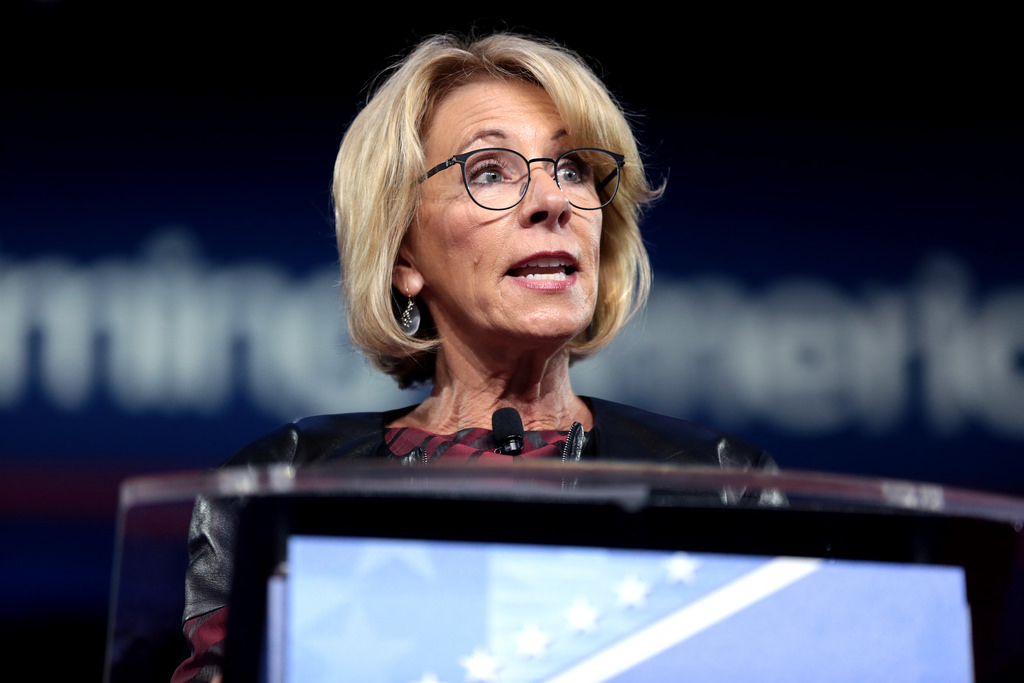Students would reap the benefits of school choice
Creative Commons photo courtesy of Gage Skidmore
U.S. Secretary of Education, Betsy DeVos at the 2017 Political Action Conference.
May 8, 2017
Betsy DeVos was confirmed as President Trump’s Secretary of Education on Feb. 7 in a 51-50 Senate vote. DeVos is an avid proponent of school choice, a controversial topic which focuses on how money for education should be allocated. The closeness of the vote shows just how divided America is on the topic.
School choice advocates want parents to be able to choose where their kids go to school. If you agree with this statement, you are pro-school choice.
Some might say that if school choice was implemented, inner cities would suffer. Randi Weingarten is the president of the Americation Federation of Teachers and a firm opponent of school choice.
“[School choice has] hurt kids by leaving public schools destabilized and their budgets drained,” Weingarten said in an official statement.
This is simply untrue. The Black Alliance for Educational Options (BAEO) said in their 2015 “State of Education in Black America” report that “BAEO believes education reform and parental choice are about more than just policy directions of imperatives. These two issues are about saving our children’s lives.”
In 2004, the Washington D.C. Opportunity Scholarship Program was implemented, awarding $7,500 scholarships to 3,700 students over six years, according to the Heritage Foundation, a conservative research and educational institute. According to a 2010 evaluation of the program conducted by Congress, students who used the voucher program had a 91 percent graduation rate, compared to just 70 percent for non-voucher students.
President Trump supports school choice, and said he wants to provide impoverished students with “$12,000 in school choice funds” and “the money would follow the student. That means that the student will be able to attend the…school of their choice.”
Admittedly, a former television star and real estate developer most likely does not know how to create a plan to help students in both rural Pennsylvania and Oakland, Calif. in the same bill. But he is on the right track by giving states more funding and a larger voice in how their students are educated.




